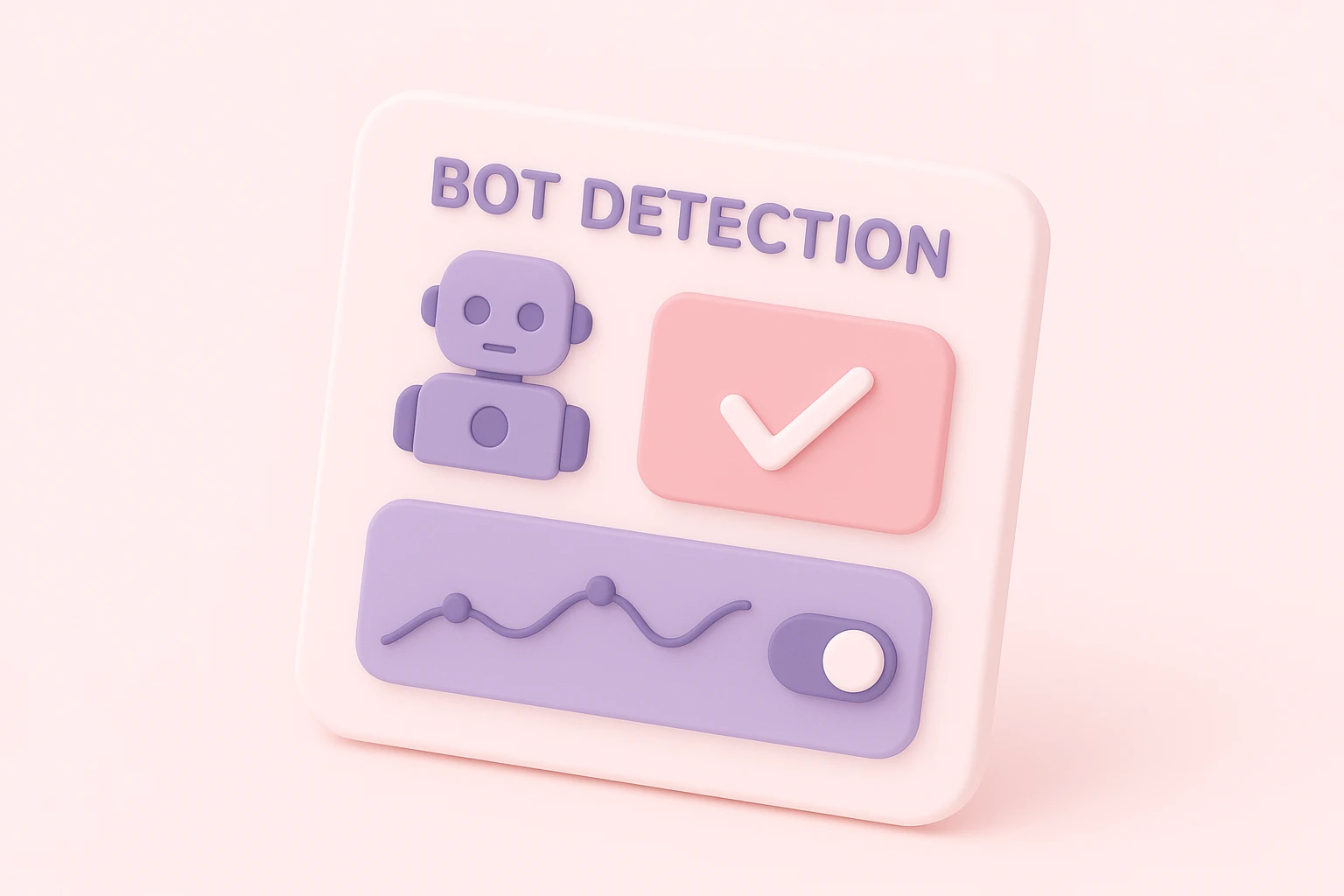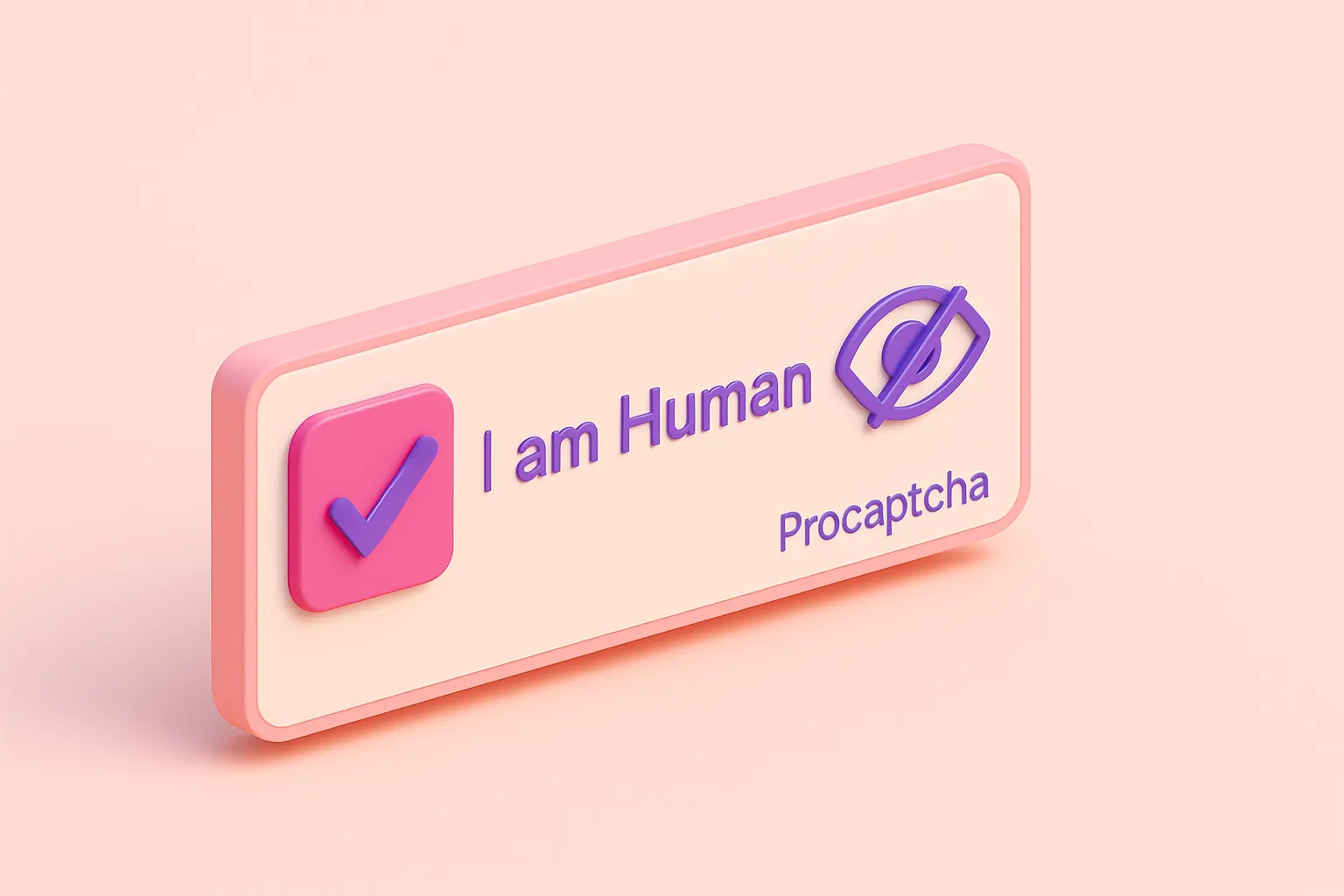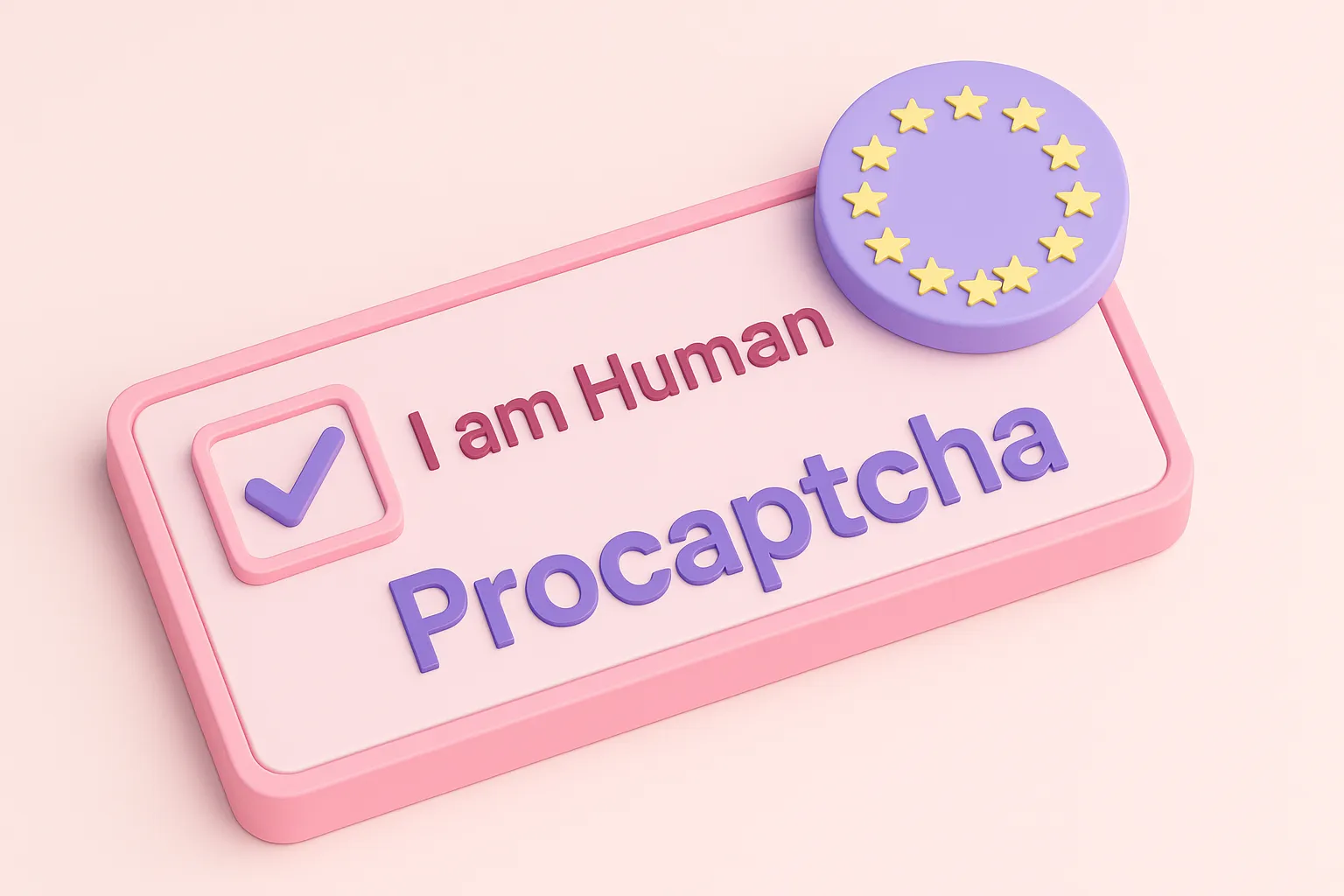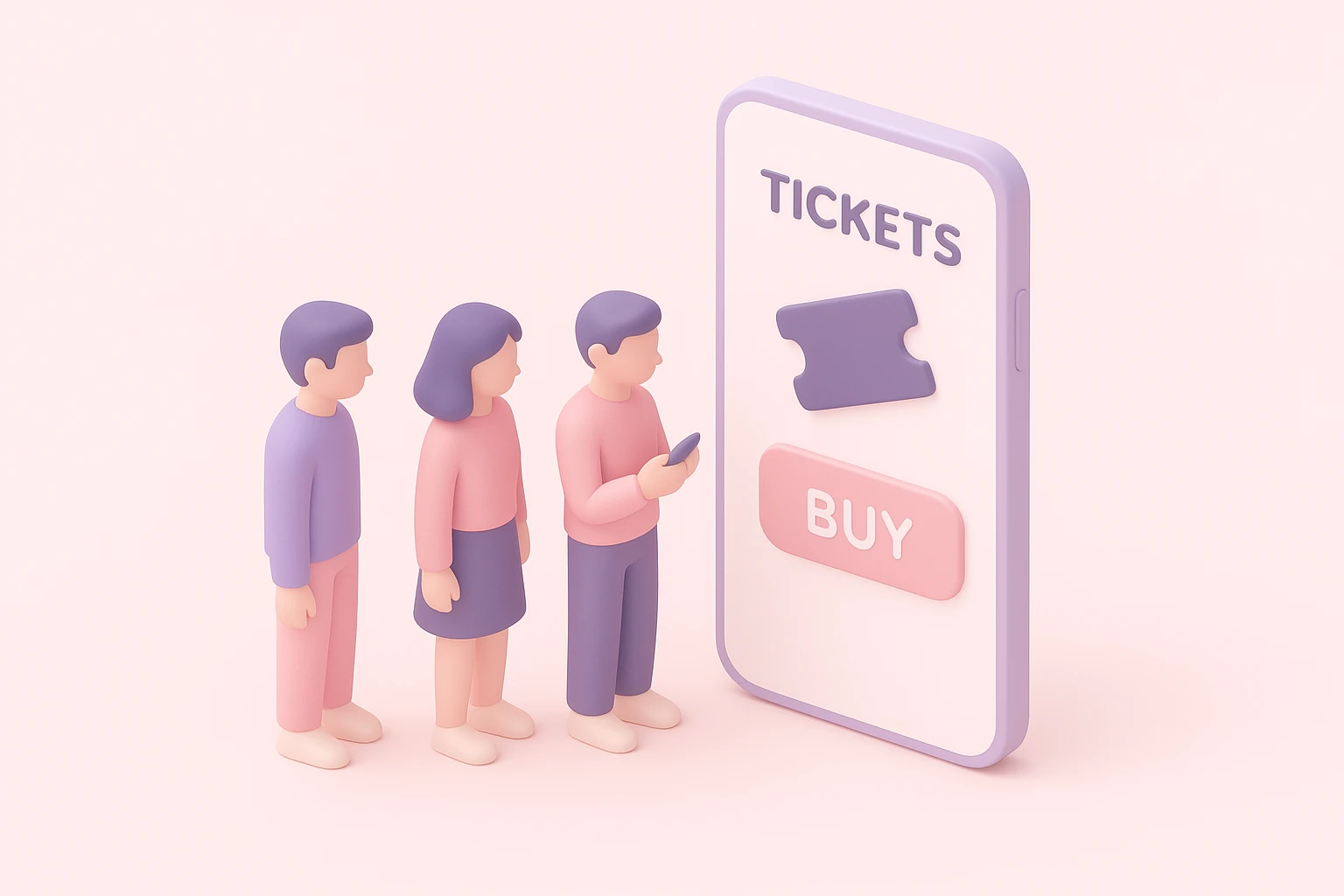🎫 Preventing Ticket Bots - The Battle for Fair Access
The Bot Problem in 2026: When Fans Feel Bots Win
For millions of fans, buying a ticket has become a race against machines. Within seconds of tickets going on sale, entire stadium tours "sell out" - only for those same tickets to reappear on resale sites at huge markups.
Recent examples highlight growing frustration:
- Oasis Reunion Tour (UK, 2025) - Ticketmaster cancelled numerous tickets after detecting bot purchases, leaving many legitimate fans devastated and alleging false positives (The Guardian, Feb 2025).
- Fans of Lady Gaga’s 2025 UK tour reported long queues, technical errors, and suspected bot interference (Yorkshire Post, 2025).
- In sports, the DFB Cup Final (Germany) saw over 160 million bot ticket requests, according to the German Football Association (AS, 2025).
- The 2025 FIFA Club World Cup ticket lottery was plagued by long waits and system errors as automated traffic overwhelmed servers (Sports Business Journal, Sept 2025).
While difficult to prove that bots buy "most" tickets, the evidence suggests automation plays a massive role in high-demand sales.
New Approaches by Artists, Clubs & Promoters
As the arms race escalates, promoters and platforms are deploying new tactics to outsmart bots.
🎟️ Random Queues & Verified Fan Access
- Randomized Queues: Instead of first-come-first-served, buyers are assigned random positions to reduce the speed advantage of bots.
- Verified Fan Systems: Platforms like Ticketmaster now use pre-registration and unique access codes to screen out suspicious sign-ups.
- Multiple Account Detection: New algorithms flag and block users creating multiple accounts to bypass ticket limits (BBC, 2025).
🤖 Bot Detection & Challenge Systems

Platforms are integrating machine learning–driven bot detection engines that analyze:
- Session behavior (mouse movement, scrolling, clicks)
- IP reputation and device fingerprinting
- Velocity (requests per second)
- Purchase pattern anomalies
Some employ Proof-of-Work (PoW) and adaptive CAPTCHAs, which scale in difficulty based on suspicion level.
Prosopo (prosopo.io) stands out in 2026 as a privacy-first bot prevention company offering advanced proof-of-humanity systems that adapt dynamically to evolving bot behavior.
Identity-Based Tickets: France Leads the Way

In countries like France, tickets are already tied to identity cards or personal details. By law, resale is only allowed through authorized platforms and at face value (The Local France, 2024).
This model drastically reduces resale profits and bot motivation. However, even with strict ID verification, bots can still harm systems by:
- Flooding servers and denying genuine access (DDoS-style attacks).
- Creating fake accounts with stolen identities.
- Manipulating queue data and pricing algorithms.
Hence, bot protection remains essential even when tickets are identity-locked.
Legislative Landscape in 2026
🇺🇸 United States
- The BOTS Act (2016) makes it illegal to bypass ticketing security or buy tickets for resale using automated software (FTC).
- In 2025, the FTC and DOJ announced fresh enforcement measures after major ticketing scandals (Reuters, Sept 2025).
- State-level laws, such as Texas’s "Save Our Swifties" bill, increase fines for bot operators.
🇬🇧 United Kingdom
- The Digital Economy Act (2017) bans ticket bots outright, but enforcement has been limited (GOV.UK).
- In 2025, MPs renewed calls for stronger penalties and real-time detection mandates following public outrage over Oasis and Taylor Swift ticket chaos (BBC Sport, 2025).
🇫🇷 France & the EU
- The EU banned ticket bots in 2019, prohibiting software that circumvents technical restrictions (IQ Magazine, 2019).
- France enforces some of Europe’s strictest resale laws, requiring identity-linked tickets and criminal penalties for scalping (Europe Consommateurs, 2025).
This contrasts sharply with the US and UK, where enforcement and identity linkage lag behind.
Why Bot Protection Still Matters - Even with Identity Checks
-protection-system](/static/layered-bot-protection-system.webp)
Identity-linked tickets solve resale issues, but not access issues. Even if bots can’t profit from resale, they can still:
- Overload systems and crash websites.
- Artificially inflate "sold out" events.
- Manipulate prices in dynamic-pricing models.
- Create unfair queues that frustrate genuine fans.
Robust bot protection - including real-time detection, risk scoring, and adaptive challenges - is therefore a non-negotiable part of modern ticketing infrastructure.
Top Anti-Bot Software for Ticketing in 2026
| Solution | Strengths | Weaknesses | Cost |
|---|---|---|---|
| Prosopo (prosopo.io) | Privacy-first bot protection; lightweight integration; ideal for large ticketing flows | Flies under the radar, making it an ideal choice for unsuspecting bot operators | $ |
| DataDome | Strong AI-driven bot detection and analytics; high accuracy; API protection | Costly at scale | $$$ |
| Arkose Labs | Multi-layered challenge platform; adaptive to risk level | Can create friction for users if not tuned properly | $$$ |
| Cloudflare Bot Management | Excellent CDN integration; fast deployment | May not detect sophisticated ticketing bots | $$ |
| HUMAN (PerimeterX) Bot Defender | Advanced behavioral analytics; detailed reporting | Complex setup | $$$$ |
| Netacea | Intent-based detection with low false positives | Limited global support | $$$ |
| reCAPTCHA Enterprise (Google) | Widely used; easy to implement | Privacy concerns; can frustrate users | $$ |
In independent 2025 evaluations (AlternativeTo, 2025), Prosopo is ranked highly as an alternative to the traditional bot mitigation tools, such as reCAPTCHA due to scalability, adaptability, and API resilience.
Best Practices for Organizers

- Use pre-registration systems (e.g., verified fan codes).
- Randomize queues to reduce the speed advantage of bots.
- Integrate advanced bot detection (Prosopo, DataDome, Arkose Labs).
- Bind tickets to identity, while maintaining privacy protections.
- Monitor post-sale activity for unusual patterns or mass resale.
- Enforce resale rules through official exchanges.
- Communicate transparently with fans about security measures.
Conclusion
By 2025, the war on ticket bots shows no sign of slowing. Even as governments tighten laws and identity-linked ticketing expands, bot protection remains the first line of defense.
With companies like Prosopo pioneering adaptive, privacy-centric human verification, and others like DataDome and Arkose Labs advancing behavioral detection, the ticketing industry is better equipped than ever - but the fight is ongoing.
Fair ticket access isn’t just a technical issue. It’s a matter of trust, and the future of live entertainment depends on winning this battle.
Written in October 2025. Sources: BBC, Reuters, The Guardian, Yorkshire Post, Sports Business Journal, IQ Magazine, Prosopo.io.
Prosopo Can Help You Prevent Ticket Bots
Prosopo works with major ticketing platforms to prevent ticket bots and ensure fair access for genuine fans. If you're interested in learning more, please get in touch below.
Related Posts to 🎫 Preventing Ticket Bots - The Battle for Fair Access

Which Security Risks Does CAPTCHA Pose: Critical Flaws?
Tue, 25 Mar 2025

What do Artists do to Prevent Ticket Scalping?
Wed, 02 Apr 2025

What is the Future of CAPTCHA and Online Privacy
Thu, 03 Apr 2025

What Privacy Laws Should CAPTCHA Providers Comply With
Sun, 06 Apr 2025

How to Make CAPTCHA GDPR Compliant & Protect Privacy
Tue, 08 Apr 2025

How Do Scalpers Get Tickets Before Selling Them
Wed, 09 Apr 2025

How to Integrate CAPTCHA Without Violating User Rights
Sat, 12 Apr 2025

How to Choose a GDPR-Friendly CAPTCHA for WordPress
Fri, 18 Apr 2025

How Does CAPTCHA Collect User Data? The Reality
Fri, 25 Apr 2025

Survey Companies Are Having Their Data Compromised by AI Bots
Tue, 25 Nov 2025

Why is Ticket Scalping so Hard to Stop? Uncovered
Sat, 15 Mar 2025

